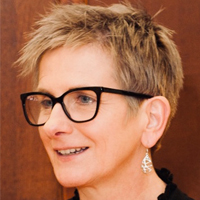We have never been so fractured and so hostile; so bitterly divided as a nation. People have lost their humanity and are now defined as traitors, cowards and dangerous others. We won two worlds wars, so why would we want to pushed around by Krauts?
The familiar, bitter language of war is everyday parlance. It is a war against others and also against ourselves.
Hannah Arendt Bluecher’s The Origins of Totalitarianism, written in 1952, described the fragility of freedoms and peace. As a German-American Jewish philosopher, she had experienced first-hand the growth of anti-semitism into a social movement and the creation of the Nazi state and its spread across Europe of a new wave of dehumanising thought leadership.
This warning from history highlights the patterns of behaviour becoming accepted by some social movements in modern-day society and goes much further than the UK. Hannah Arendt Bluecher highlighted the characteristics of the origins of a totalitarian state:
- The need for a great, strong male leader who has all the answers, who shall be unquestioned and supremely powerful.
- The acceptance of lying and post-truth statements.
- The alliance of the elite and the mob in the pursuit of their own economic interests.
- Nationalism and patriotism being celebrated as glorious and superseding other bonds of community between people, leading to war as a way to control and divide the working class of different nations against each other.
- People stripped of their humanity and turned into commodities, that are acceptable to send to the gas chamber in their millions because they are not humans – they are traitors, cowards or dangerous others.
Local government has an increasingly critical role to play in such divided and divisive times if we are to void further fragmentation.
Invented in the 16th century, local government has always had the job of stitching together the complexity of different views in neighbourhoods and through democratic structures providing a clear mandate to run services effectively for local people and improve their quality of life.
These days, communities feel disenfranchised and that their voice is not being heard. The role of the locally-elected politician needs to be urgently redefined.
With electoral turnout declining in the UK every year over the last 40 years, we need to carve out a new role for local democratically-elected members as the voice of the people – the real definition of demonstrations and democracy.
In Scotland, a place that has experienced this division even more starkly since the referendum, citizens’ assemblies are being rolled out to help to reconnect local political structures with the people.
We have to trial and test new and exciting models of democracy such as this to re-engage a fed up public that has lost faith in our traditional models.
We are crying out for the bonds of community, of humanity, of the things we have in common to be strengthened, nourished and built back up.
It means elected officials and officers shifting from their familiar comfort zone and embracing new and more courageous models of governance.
The New Local Government Network’s The Community Paradigm and Community Commissioning reports (both available free online) set out the history of public services in the UK. They chart the civic, the state and the market paradigm phases of public service evolution and finally, the desperate need for a new community model as the fourth, and hopefully final, and sustained stage.
As well as the theory of change, we share very practical real-life examples of how we can do this alongside communities.
If we don’t rise up against the hatred, deliberate division and fear that is at the heart of UK democracy at the moment, the consequences could be terrible for us all.
Donna Hall CBE is chair of New Local Government Network and honorary professor of politics at the University of Manchester




